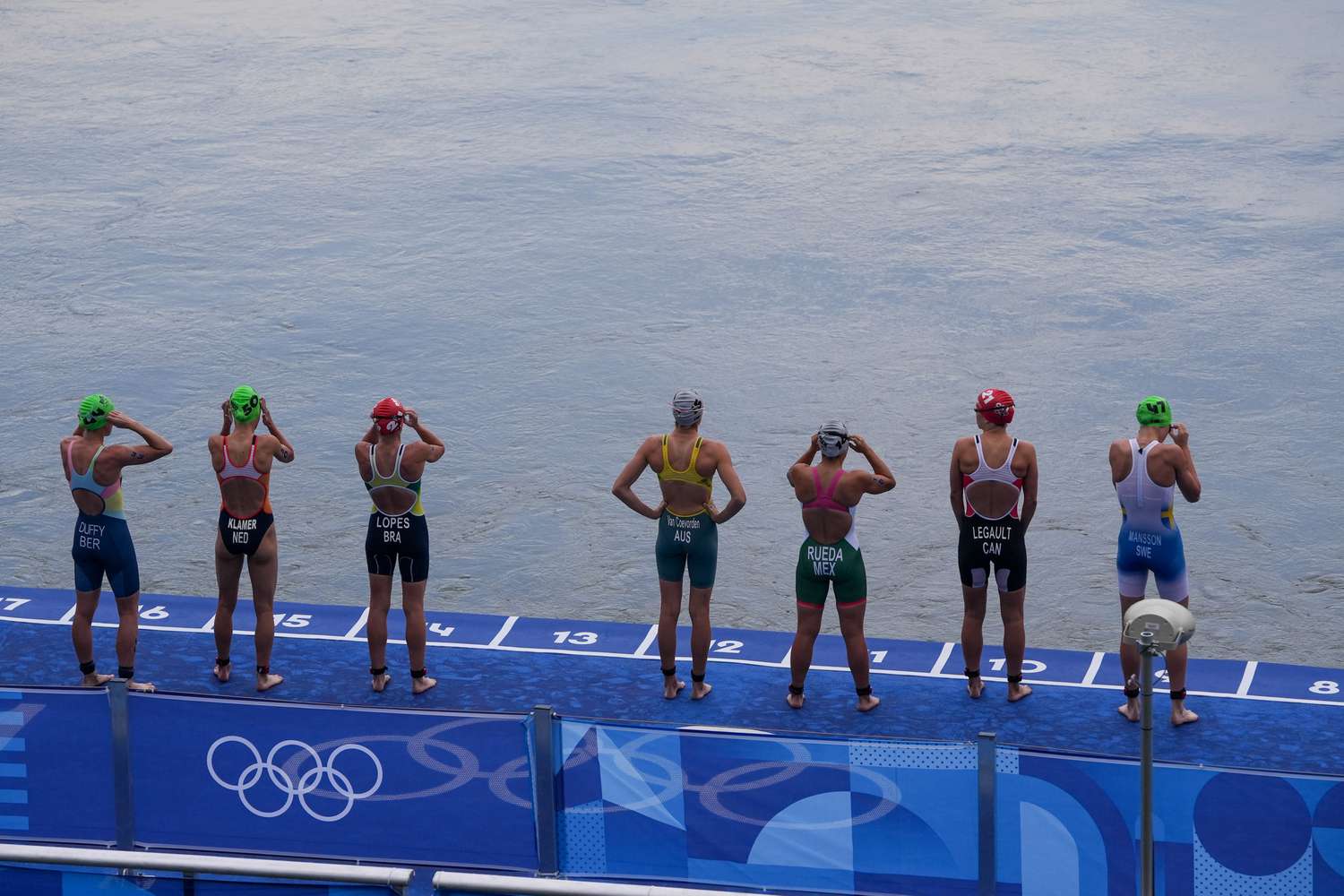Olympic Triathletes Brace for E. Coli …C0NTINUE READING HERE >>>
Key Takeaways
A few triathletes fell ill after swimming in the Seine last week. Despite cleanup efforts, bacteria levels in the Seine can still rise above safe thresholds, especially after heavy rainfall.Some triathletes said they’re using mouthwash, Pepto-Bismol, and other tricks to help prevent infections. But health experts say these may do more harm than good.
Belgium’s triathlete Claire Michel was hospitalized with an Escherichia coli (E. coli) infection after swimming in the Seine, the iconic French river that has raised serious concerns about its water quality.
The Belgian triathlon team withdrew from Monday’s mixed relay triathlon competition due to safety concerns. Switzerland also had to replace its triathlete, Adrien Brifford, who got sick with a gastrointestinal infection. However, the Paris 2024 Olympic organizers said the competition would still take place in the Seine as scheduled.
Although Paris invested a billion-dollar investment in cleaning up the Seine, the bacteria levels could fluctuate and exceed the safety threshold, especially after heavy rains.
Outbreaks of infectious disease have happened among triathletes before, including a leptospirosis outbreak in Illinois in 1998 when a competition was held in Lake Springfield after heavy rainfall. It was one of the largest outbreaks of leptospirosis—an infection spread through rat urine—in the United States.
Some U.S. Olympians have been preparing their bodies against the pollution in the Seine with various “hacks,” from not washing their hands to increasing probiotic intake. Britain’s triathlete Georgia Taylor-Brown said she took Pepto-Bismol to “line” her stomach before and after the race and used mouthwash to clean her mouth right after swimming. Drinking Coca-Cola also seemed to be a popular cleansing ritual for British athletes.
“I’m pretty sure no team doctor would advise on not washing your hands after using the bathroom. It doesn’t work like that. You can’t ‘build an immunity’ to E. coli,” said David Nguyen, MD, an assistant professor of pediatrics and internal medicine with a specialization in infectious diseases at Rush University Medical Center.
Water quality tests use E. coli as an indicator for other harder-to-detect bacteria and contaminants, but athletes won’t be exposed to only E. coli in the river. Additionally, only certain forms of E. Coli are dangerous to humans. Certain strains of E. coli may be present on your hands after you go to the bathroom, but they may not necessarily be the harmful strains that disrupt intestinal functions.
Aaron Best, PhD, a professor of genetics and a co-director of the Global Water Research Institute at Hope College, said that none of these theories are advisable for people trying to mitigate the effects of potential contaminants.
While building up a healthy gut microbiome via probiotics is plausible, it would take much longer than just a few weeks before the competition, Best said. As for the mouthwash and Coca-Cola trick, he said these might do more harm than good by wiping out part of the natural microbiome that’s protective against diseases.
“You could argue—potentially as effectively—that you’ve just cleaned out your mouth and allowed space for these pathogens to come in and grow,” Best told Verywell.
Best said the best approach for people who want to swim in local rivers is to double-check any public advisories and testing results for water quality. Keeping an eye on the weather can also help reduce the risk.
“If you get a decent amount of rain in the prior day or two to when you’re planning to go swim in a lake or stream, it’s much more likely for there to be high levels of bacteria present because of runoff [and] because of the way sewer infrastructure is set up,” Best said.
You’re less likely to get sick if you swim in areas that have good water circulation, such as beaches. Avoid swimming in areas where you can see discharge pipes or urban beaches after heavy rainfall. Don’t get into the water if you have open wounds.
What This Means For You
If you plan to swim in rivers or lakes, check local water quality reports and be aware of recent weather conditions, as rainfall can increase bacteria levels. Swimming in areas with good water circulation is advisable, and avoid entering the water if you have open wounds. Always prioritize established health guidelines over unproven methods to protect yourself from potential infections.
Verywell Health uses only high-quality sources, including peer-reviewed studies, to support the facts within our articles. Read our editorial process to learn more about how we fact-check and keep our content accurate, reliable, and trustworthy.
U.S. Environmental Protection Agency. What Affects Human Health at the Beach.
Thanks for your feedback!
What is your feedback?
Other
Helpful
Report an Error
>
